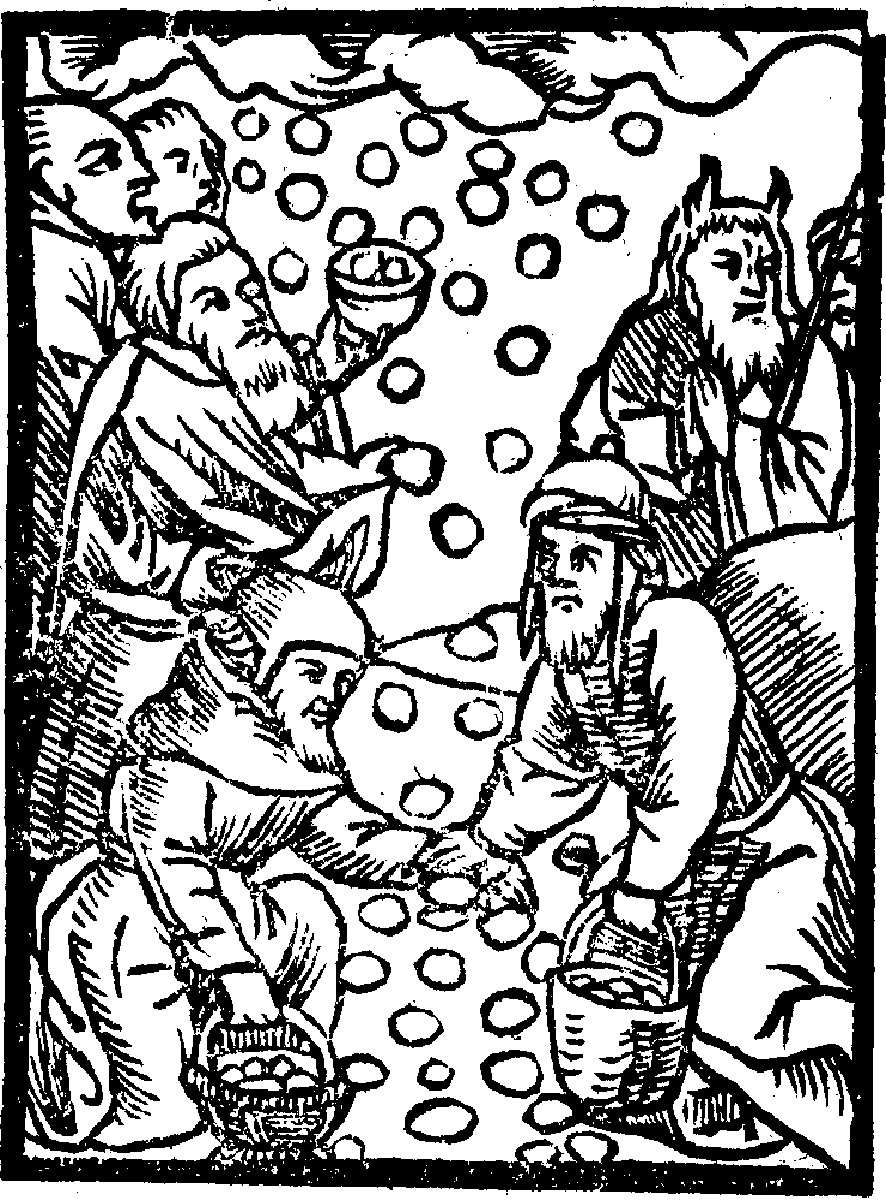Reference links:
Old Testament
Unintentional sins can be forgiven by making the right sacrifice, but those who intentionally sin must be cut off from the community. I am not so big on the actual punishments, but I do like that the law differentiated between intentional and unintentional sin without letting unintentional sinners get off without consequences. I think that it is important to hold people for their actions, even if the harm caused by those actions was not intended, but I also think it is important to recognize that motivation does have an impact.
According to today’s bit of case law, those who violate the Sabbath should be stoned to death. I still think stoning is an unreasonably cruel death, even given the limited execution choices at the time. It is unreasonably cruel for the suffering it causes (as I have mentioned before), but also because it makes the whole community actively complicit in the killing. Now, this may have some advantages (it is easier to accept killing criminals if it is being done out of sight), but there is something deeply disturbing about the idea of a community coming together to kill one of their own members.
Speaking of killing, God murders more people. Korah, Dathan, Abiram, and On incited a rebellion against Moses and Aaron. 250 community leaders sided with them. Moses challenges them to come to the Tabernacle and let God choose who should lead. The men eventually agree to come. They lit incense before the Lord’s Tabernacle, and God’s presence appeared and was annoyed.
God, as seems to be normal, threatens to kill the whole community.
Then the glorious presence of the Lord appeared to the whole community, and the Lord said to Moses and Aaron, “Get away from all these people so that I may instantly destroy them!”
Moses and Aaron ask him not to, and he relents and decides only to kill the rebels. He burned the 250 men who were offering incense. However, for the men who instigated the rebellion, a worse fate was in store.
So all the people stood back from the tents of Korah, Dathan, and Abiram. Then Dathan and Abiram came out and stood at the entrances of their tents, together with their wives and children and little ones.
…
[Moses] had hardly finished speaking the words when the ground suddenly split open beneath them. The earth opened its mouth and swallowed the men, along with their households and all their followers who were standing with them, and everything they owned. So they went down alive into the grave, along with all their belongings.
Not only does God kill the ring leaders and all their followers. He kills their families, including the children. Once again I ask, even if he exists why would anyone find such a God worthy of worship?
New Testament
Pilate tries Jesus. Pilate can see that Jesus has been set up by the Jews, but Jesus does not defend himself, so Pilate, it seems, can do nothing. Note that in this version, Pilate’s wife does not make an appearance.
I noticed something in today’s reading that was interesting. Both the two men crucified next to Jesus and Barabbas, the man the people chose to free instead of Jesus, are described as revolutionaries. Tradition, as far as I am familiar, has it that all of these men are criminals and/or murderers. The difference seems significant, especially in the case of Barabbas. It seems much more reasonable for the Jewish people to choose to release a revolutionary instead of Jesus than it seems for them to release a murderer. Especially since, I am guess, Barabbas would have been a Jewish revolutionary acting against the Romans.
After Jesus is sentenced to crucifixion, the Romans mock him, take him Golgotha (forcing some dude named Simon to carry Jesus’ cross), nail him to the cross, and divide up his clothes. The passers by mock Jesus as do the men he was crucified with.
Jesus’ death causes quite the commotion. Darkness falls across the land and the curtain of the temple is torn in two. The author of Matthew, unlike the author of Mark, does not mention earthquakes or zombies. This almost reaches the level of a contradiction. On the one hand, the author of Mark does not say there were not earthquakes and zombies, so it could have happened. On the other hand, it seems like a rather large omission.
The timelines of Matthew and Mark also seem like they might be inconsistent, but are not. According to Mark, Jesus was crucified at 9am. The sun went dark at noon, and he died at 3pm. The author of Matthew does not give a start time, but that book does say that it was dark from the sixth to the ninth hour. I initially interpreted these as the sixth to ninth hour of crucifixion, but I realize now that it probably refers to the sixth to ninth hour of daylight, which maps correctly.
After Jesus’ death, Joseph of Arimathea requests permission to bury the body. He gains permission and Jesus is buried in Joseph’s tomb.
Psalms and Proverbs
Same old, same old.



